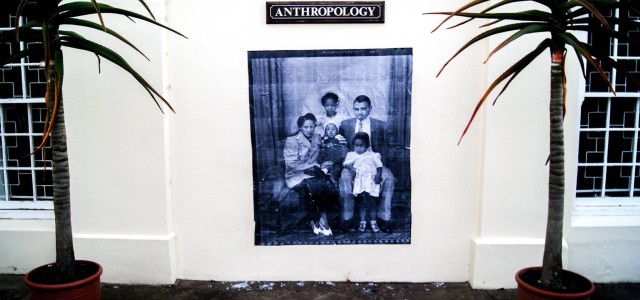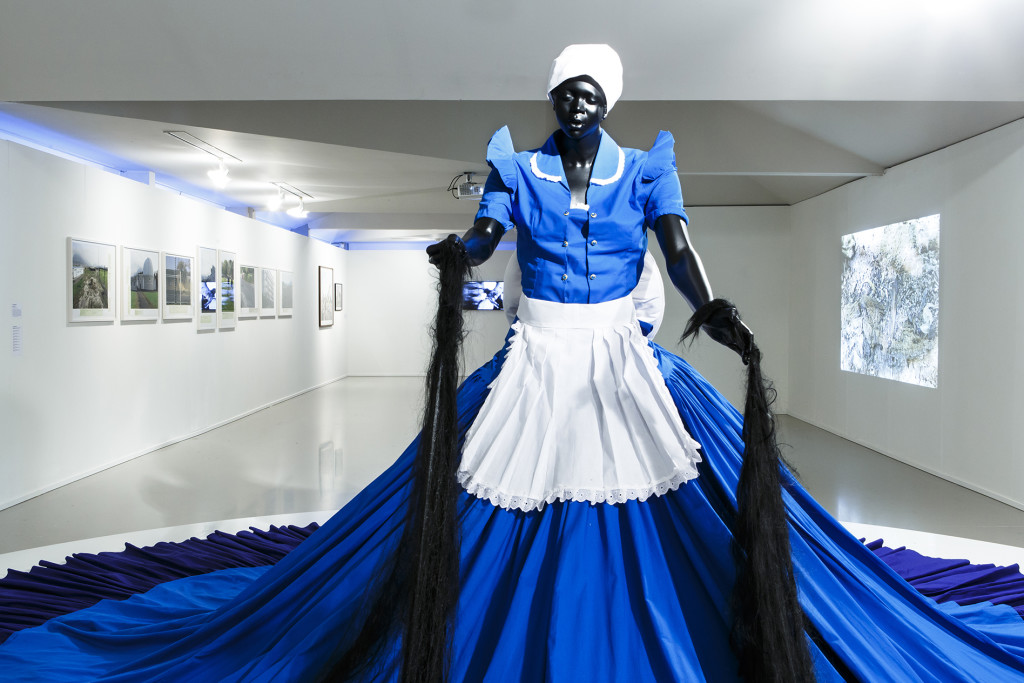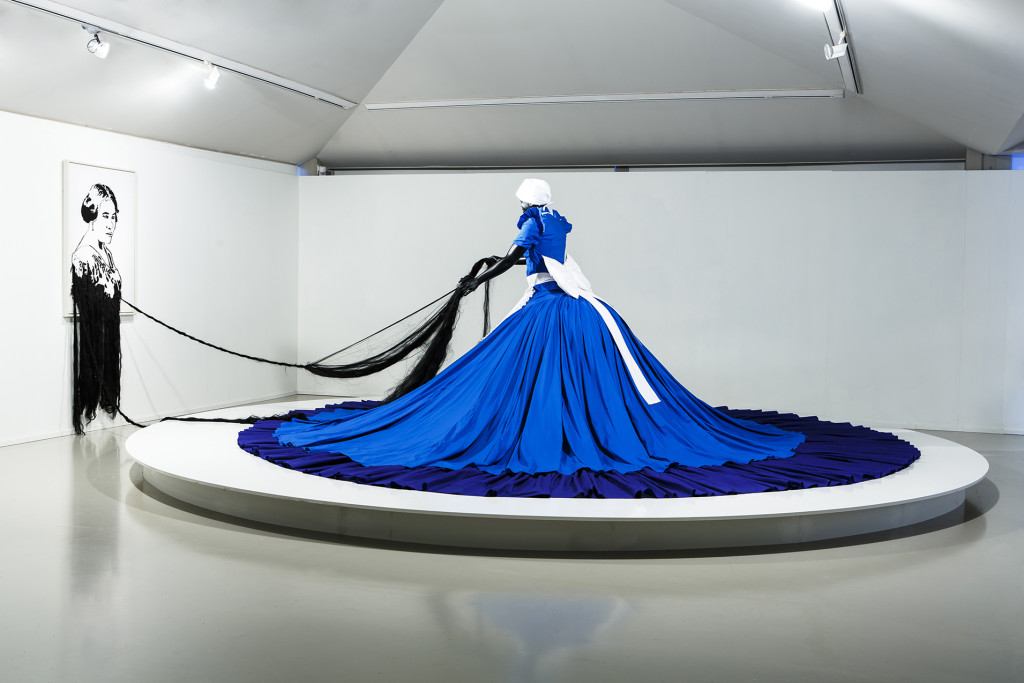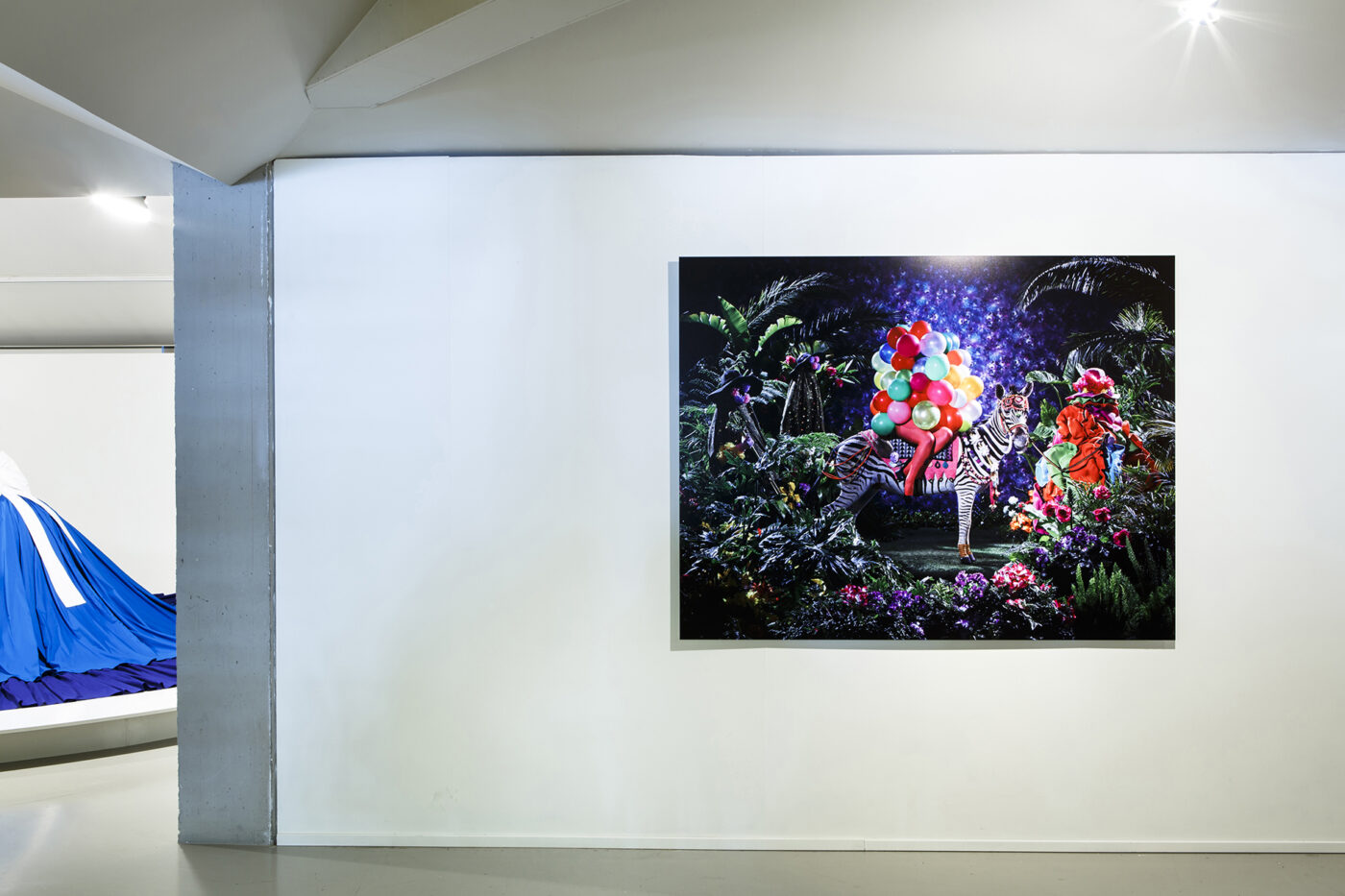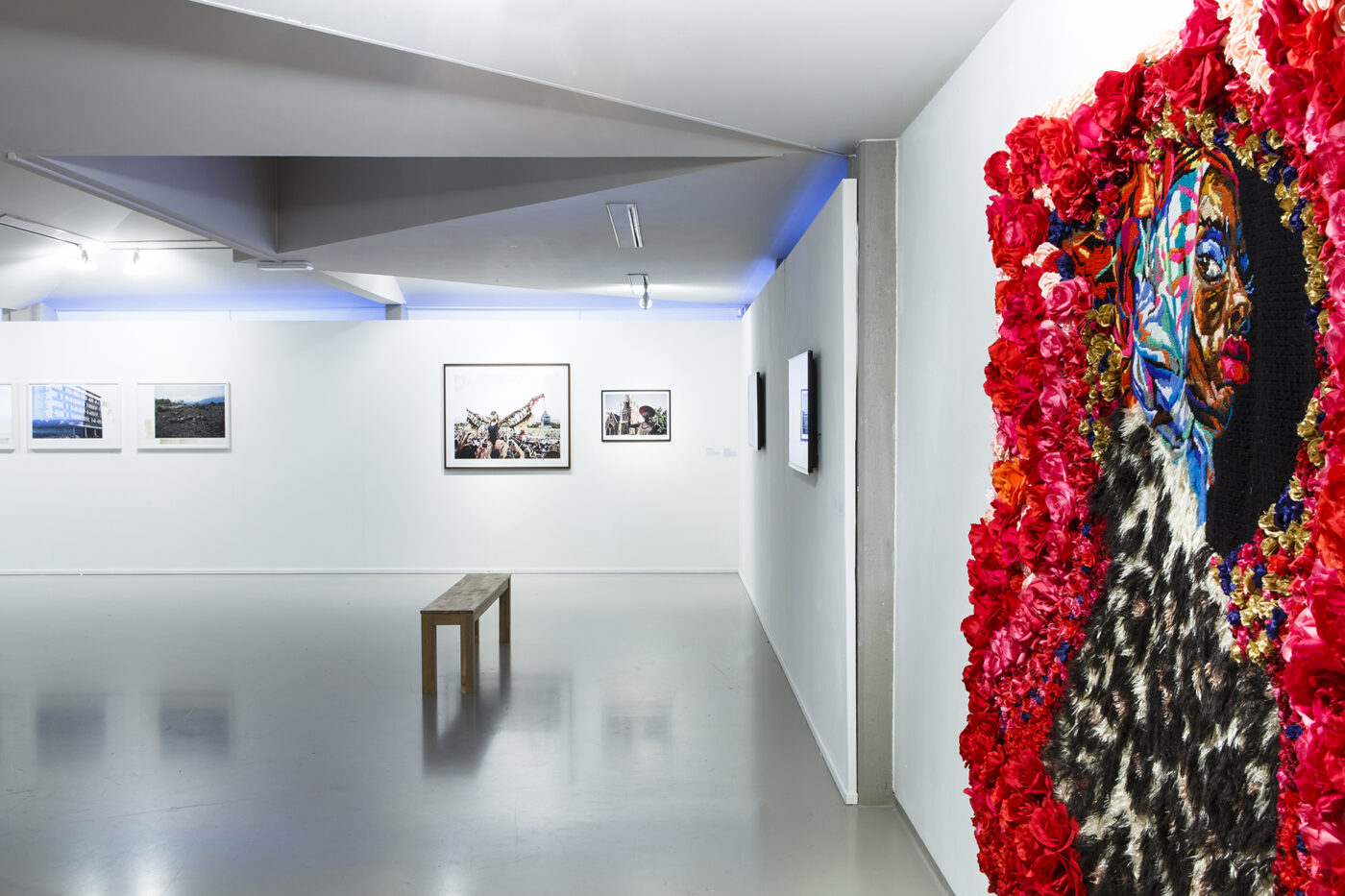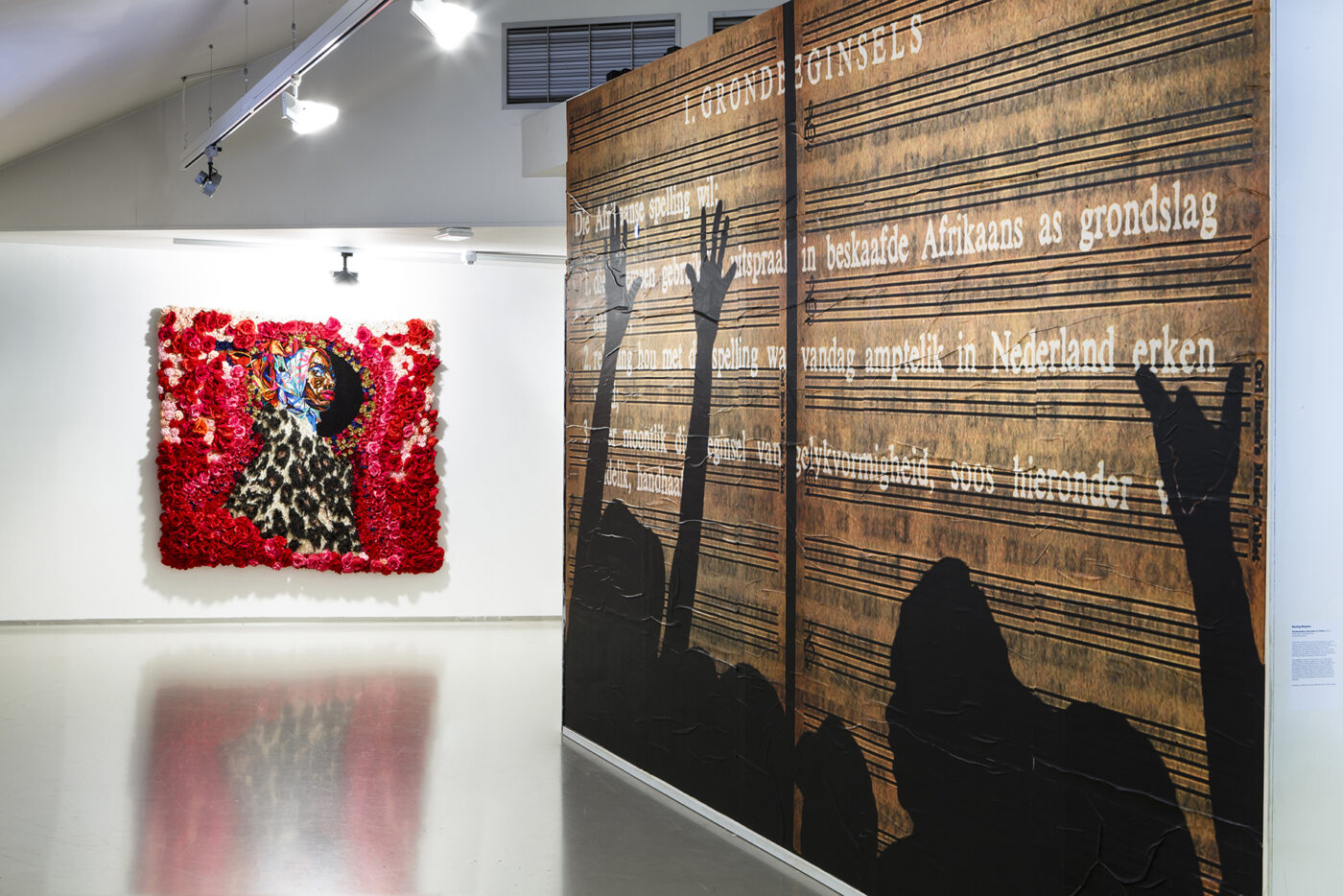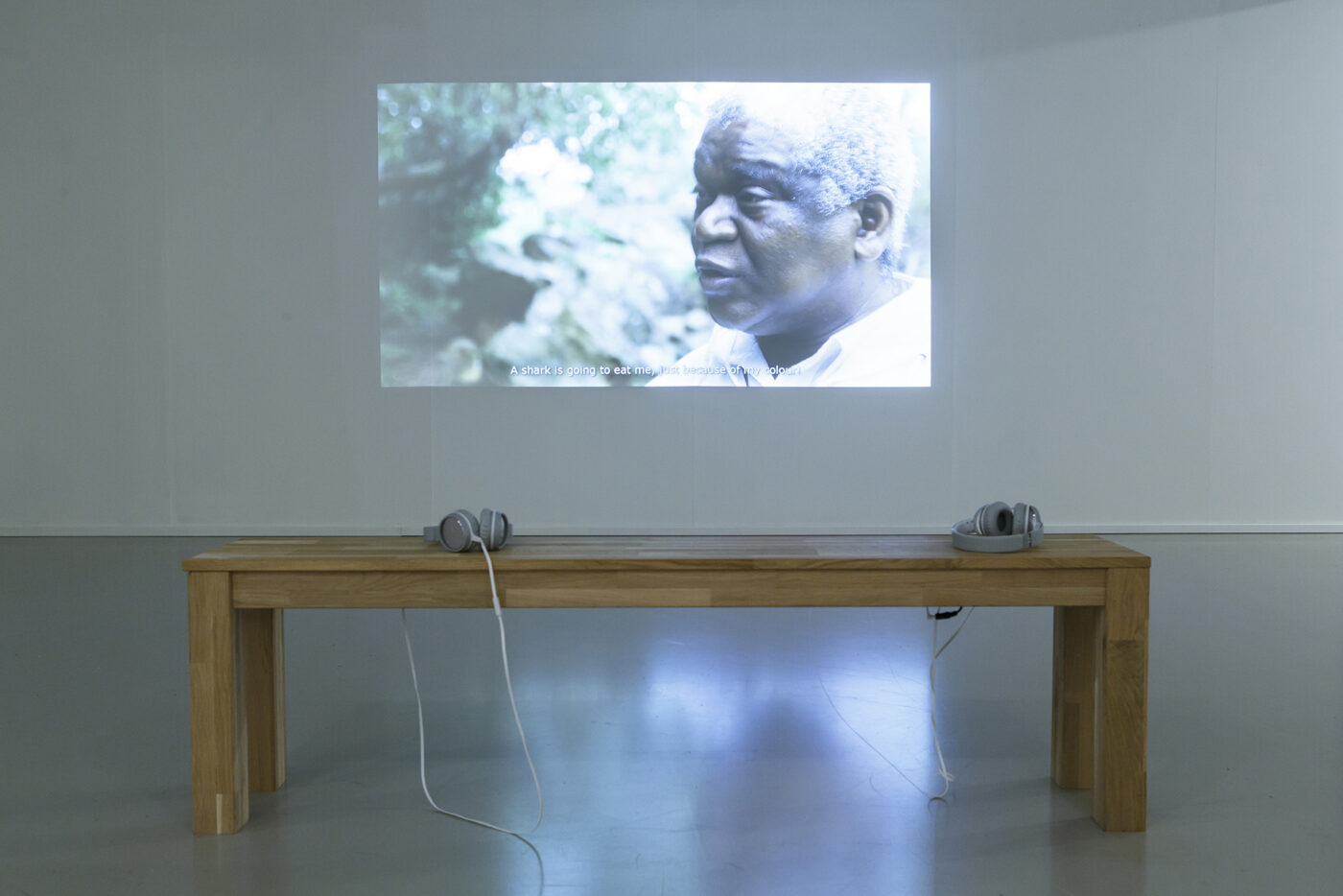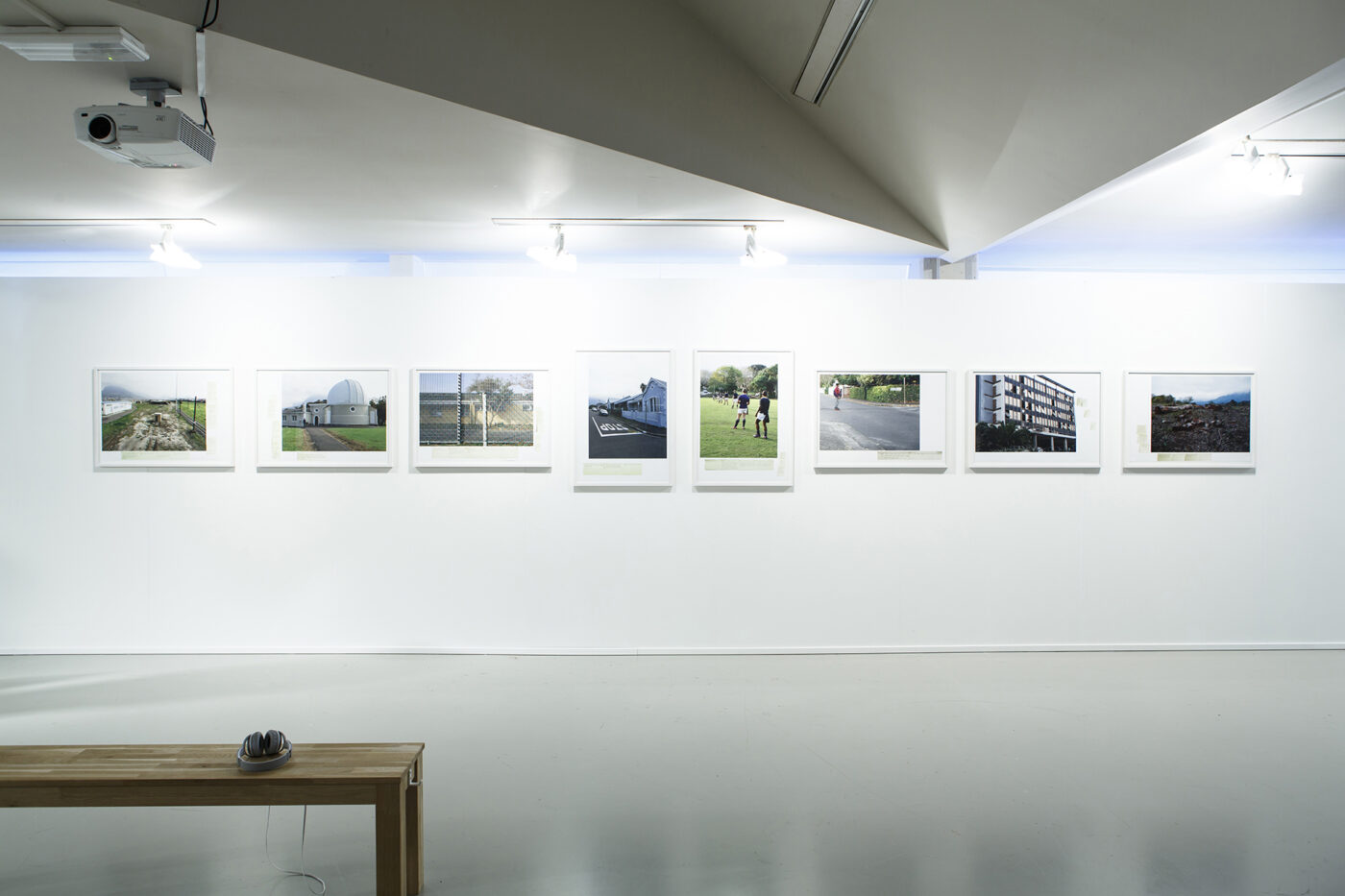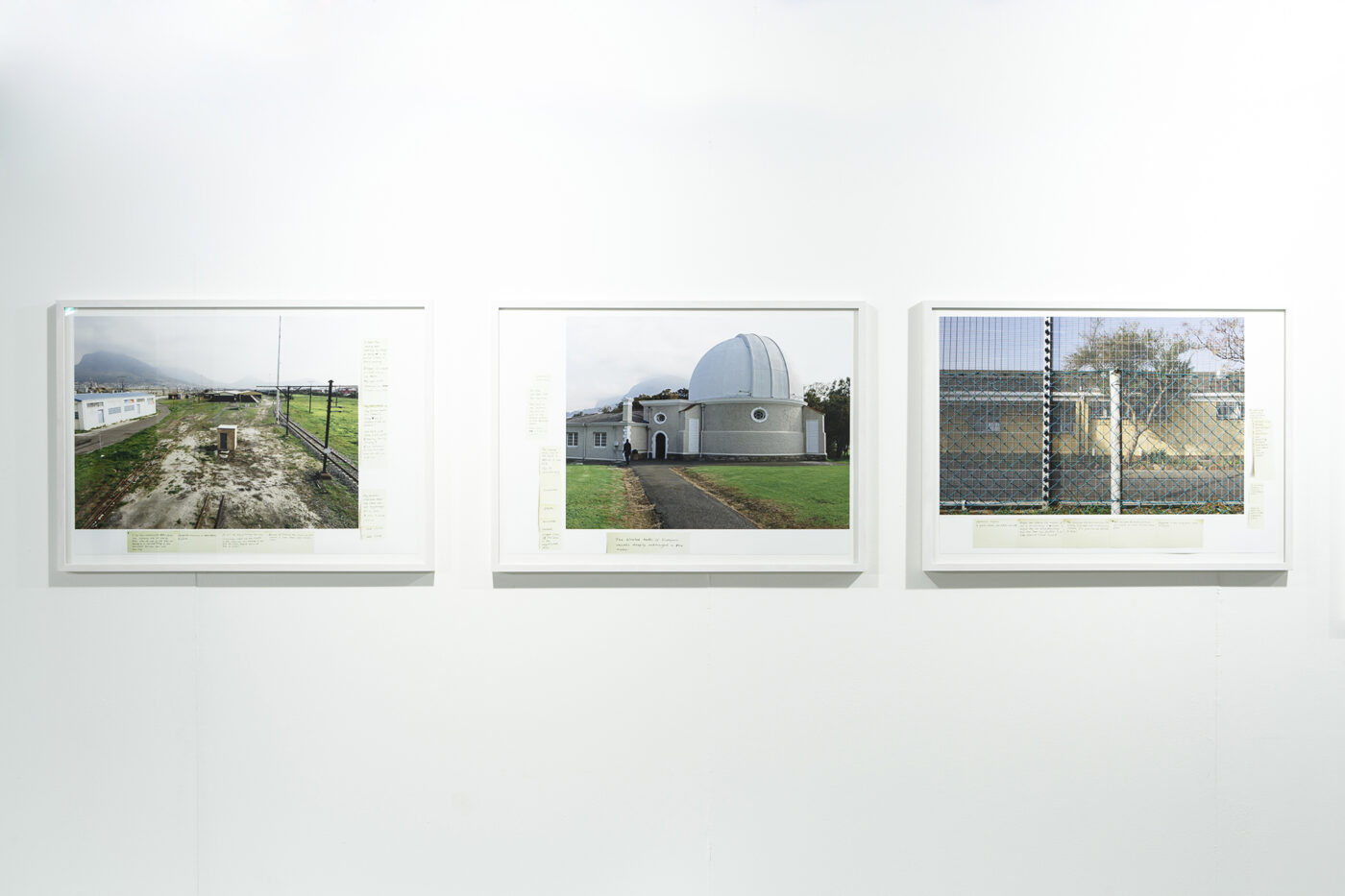28 Aug –
27 Nov 2016
Exhibition: Re(as)sisting Narratives
Framer Framed presents a unique collaborative exhibition titled Re(as)sisting Narratives, curated by Chandra Frank. The exhibition explores lingering legacies of colonialism between South Africa and the Netherlands through engaging with contemporary artists from both countries.
Re(as)sisting Narratives is a result of a two-year project with South African based partners: District Six Museum and Centre for Curating the Archive. Participating artists explore broader themes such as race, gender, memory, trauma and spatiality in their work. This multi-media group exhibition features work by artists who are connected by a shared interest in evoking and readdressing that what is left behind, that what is (in)visible, and a visual fusion of reality and fantasy to create new ways of being.
Re(as)sisting Narratives is conceived as an ongoing project and dialogue that engages and incorporates ideas of queerness, decoloniality as well as the futurity of the archive. The exhibition is on show at Framer Framed in Amsterdam from 28 August – 27 November 2016 and at District Six Museum Homecoming Centre in Cape Town from November 23 – December 13 2016. More on the exhibition at District Six Museum.
Participating artists
Mary Sibande,
Sethembile Msezane,
Mohau Modisakeng,
Athi-Patra Ruga,
Burning Museum Collective,
Toni Stuart & Kurt Orderson, and
Judith Westerveld.
Athi-Patra Ruga’s, The Night of the Long Knives I, from the ongoing performance series The Future White Women of Azania, centers the body and comments on a pre-and post-apartheid state, but through evoking fantastical characters adorned with colorful balloons. The tapestry UnoZuko reflects embroidered narratives of future imaginings and inhabitants of Azania.
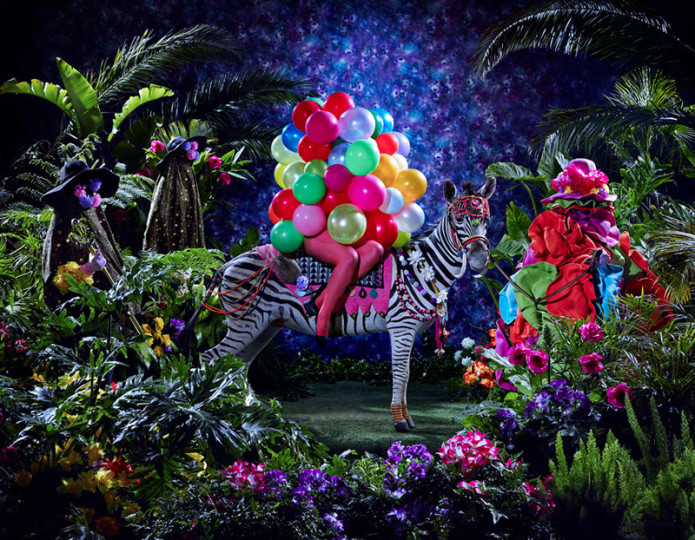 Athi-Patra Ruga – The Night of the Long Knives I (2013)
Athi-Patra Ruga – The Night of the Long Knives I (2013)
Mohau Modisakeng’s video art pieces Ga Bose Gangwe and Inzilo – an isiZulu word for ‘mourning’ – speak to the enactment of ritual and healing, simultaneously alternating between inward and outward gestures, with the Ditoala Series (VII and XIII) offering a commentary on the Black body within the South African post-colonial context.
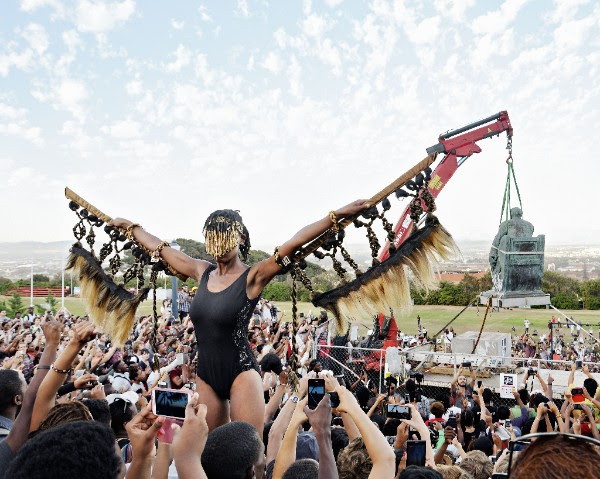 Sethembile Msezane – Chapungu – The Day Rhodes Fell (2015)
Sethembile Msezane – Chapungu – The Day Rhodes Fell (2015)
Both the work of Mary Sibande and Sethembile Msezane speak to Black womanhood. Sibande’s installation Conversations with Madam CJ Walker evokes speculative fiction in which transnational connections are addressed, whereas Sethembile Msezane uses performance to address the absence of Black women’s bodies in memorialized public spaces. Both Chapungu – The Day Rhodes Fell and Untitled (Freedom Day) reflect Msezane’s performance art, illuminating the failures of the New South Africa and the transformative potential of current student protests.
Commissioned works
Several new works where commissioned for the exhibition. The exhibitions, both in Amsterdam and Cape Town, include work made on site by the artist collective Burning Museum Collective, which consists of wheat pasted edited archive photo’s. The collective uses music, language and space to interrupt the grammatical structure of city architecture.Presented in the exhibition space of Framer Framed and outdoor on the Steve Biko Square in Amsterdam are onsite-made wheat pastes and enlarged photocopies coming forth out of their project Straatpraatjies, that questions, ‘What would historical transcriptions in the present landscape look like’?
Poet, Toni Stuart, and filmmaker, Kurt Orderson’s installation: Krotoa-Eva’s Suite: a cape jazz poem in three movements, challenges the dominant male colonial narration of history through centering on Krotoa-Eva’s historical rol. She was an early mediator between cultures and instrumental in working out terms for ending the First Dutch-Khoi-khoi War.
Artist Judith Westerveld also realized new commissioned works with The Remnant. In the video installation she examines historical remains of constructed (racial) boundaries such as walls and hedges in the South African landscape, created during the time of Dutch colonialism.
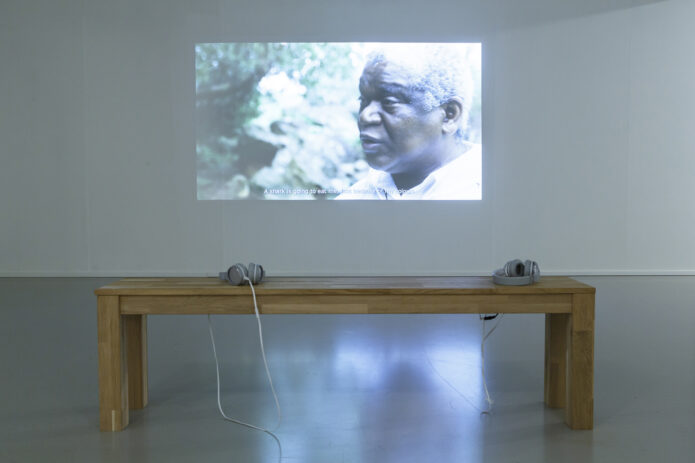
Judith Westerveld, The Remnant, 19 min 45 sec, single channel HD video, supported by Framer Framed. Photo: Eva Broekema / Framer Framed
Opening performance
Sunday August 28th, 17:00
The exhibition will be opened with a performance by artist Toni Stuart. In presence of curator Chandra Frank, artist Judith Westerveld and artists of the Burning Museum Collective. In addition to the opening performance, an extensive public program will take place throughout the duration of the exhibition among which a performance by dancer, choreographer and LGBTQI activist from Cape Town, Kirvan Fortuin.
Re(as)sisting Narratives on show at the District Six Museum, Cape Town, South Africa. Parallel to the exhibition in Amsterdam, Re(as)sisting Narratives will be on show in an adapted version in South Africa, at District Six Museum in Cape Town. You can view the exhibition here from 23 November – 13 December 2016.
Educational program
For the educational program surrounding the exhibition, Framer Framed collaborated with ‘Face to Face’. Face to Face develops a new teaching method based on digital communication technology that is used to enable exchange between students in different countries. In the run-up to the exhibition Re(as)sisting Narratives, two schools in the Netherlands and South Africa were linked. Pupils simultaneously worked together in online workshops: ‘international peer education’. One of the outcomes of the project was a pop-up exhibition that was shown alongside the exhibition Re(as)sisting Narratives at Framer Framed and the District Six Museum in Cape Town. More information can be found here.
Credits
Framer Framed and Re(as)sisting Narratives are supported by the Mondriaan Fund, Tolhuistuin, Dutch Culture / Shared Cultural Heritage, Stichting Democratie & Media and Amsterdam Fund for the Arts
Colonial history / Shared Heritage / Contested Heritage / South Africa /
Exhibitions
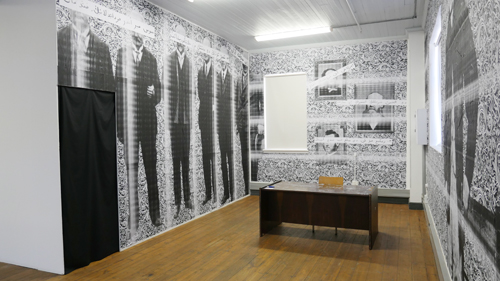
Exhibition: Re(as)sisting Narratives in South Africa
Exploring lingering legacies of colonialism between South Africa and the Netherlands through engaging with contemporary artists from both countries
Agenda
In Memoriam: Kirvan Fortuin
Memorial Celebration to commemorate the life of Kirvan Fortuin
Performance: by Kirvan Fortuin - A Festival of Project Spaces
Event as part of A Festival of Project Spaces; a performance by choreographer and dancer Kirvan Fortuin
Museumnacht Amsterdam 2016
Framer Framed programme during Museumnacht 2016.
24H Noord: exhibition tours Re(as)sisting Narratives
Exhibition visit and tours by artist Judith Westerveld during the 24H Noord event.
Performance: My Tongue Softens On The Other Name
Interactive performance reflecting on the exhibition Re(as)sisting Narratives, through taking inspiration from a poem by Gabeba Baderoon.
Unseen: tours Re(as)sisting Narratives, door Judith Westerveld
Unseen Photography Photo Fair & Festival tours by artist Judith Westerveld.
Re(as)sisting Narratives in context
A conversation in the context of exhibition 'Re(as)sisting Narratives' with curator Chandra Frank, participating artist Judith Westerveld, and moderator Jennifer Tosch.
The Story Might Not Be Complete
A discussion on erasure and the archive.
Straatpraatj(i)es: Onthoud jy nog
An intervention by Burning Museum in the Transvaalquarter, Amsterdam.
Burning Museum: Addressing the headquarters
Cut, paste, snip, plak, sak, pap, plat, bek!
Network

Kirvan Fortuin
Dancer, Choreographer
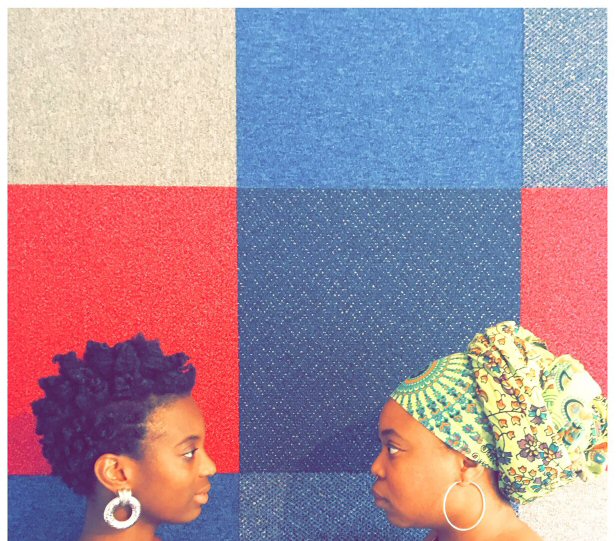
Dorothy Blokland
Actor

Yahmani Blackman
Actrice

Sethembile Msezane
Artist
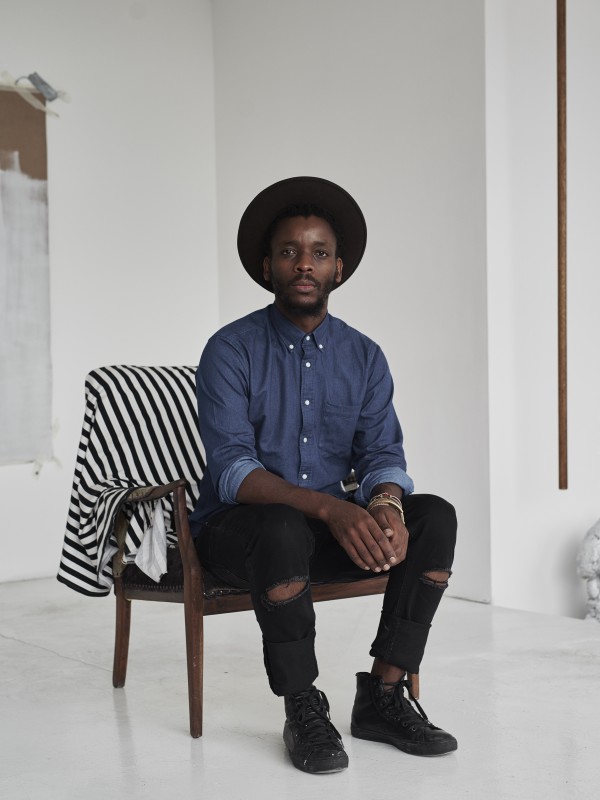
Mohau Modisakeng
Artist
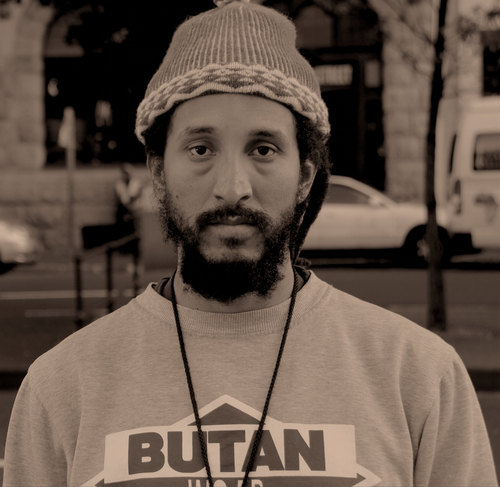
Kurt Orderson
Filmmaker
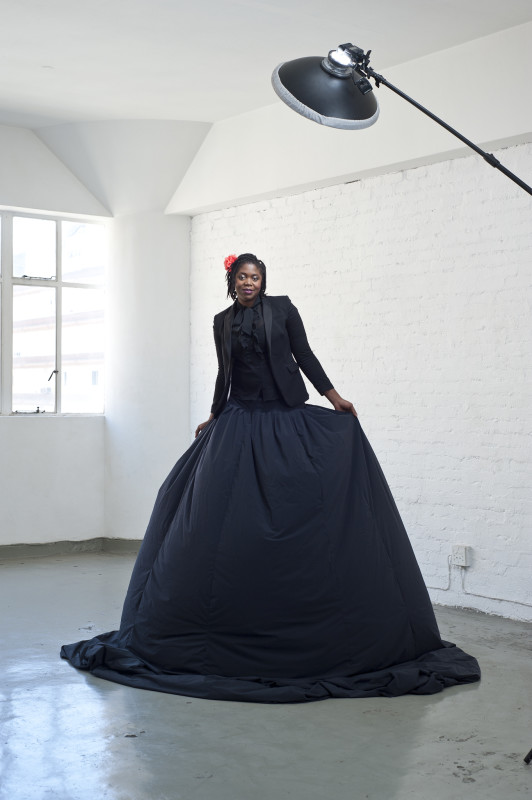
Mary Sibande
Artist
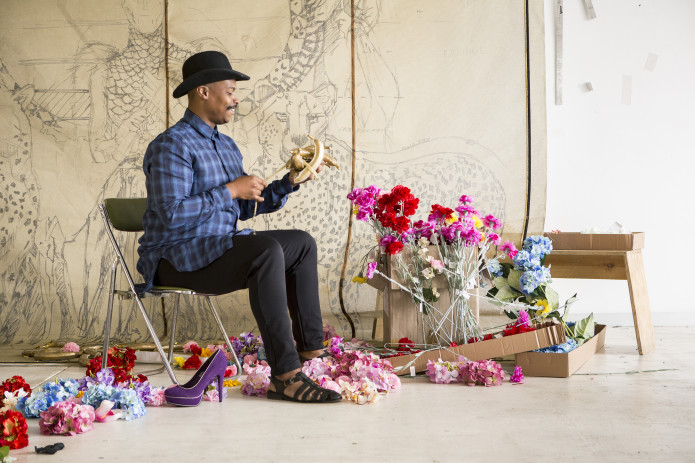
Athi-Patra Ruga
Artist
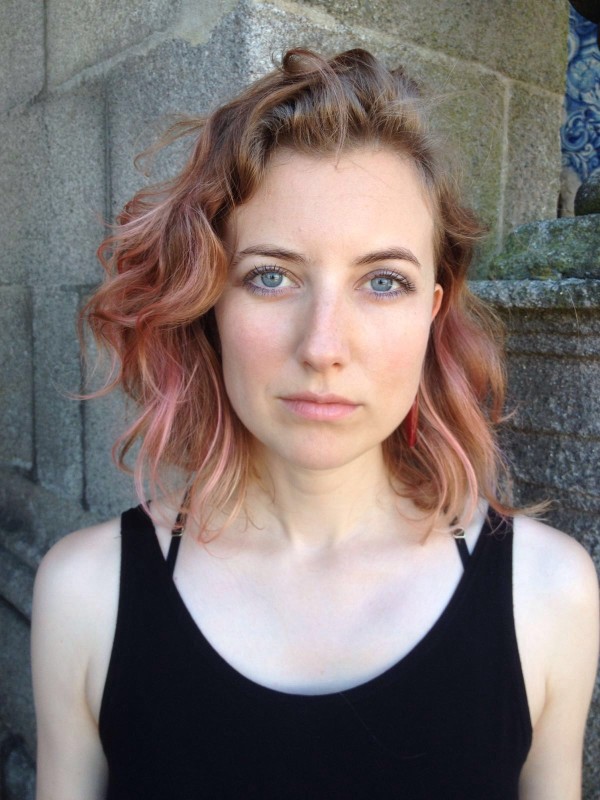
Judith Westerveld
Artist
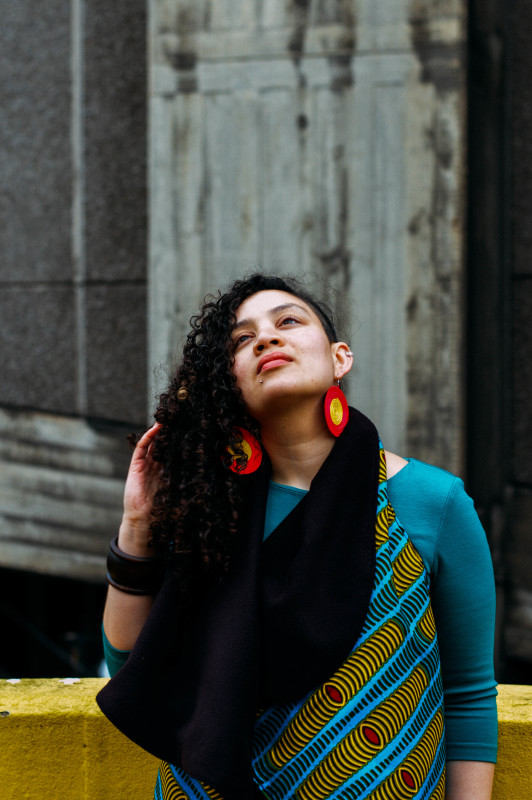
Toni Stuart
Poet, performer, educator
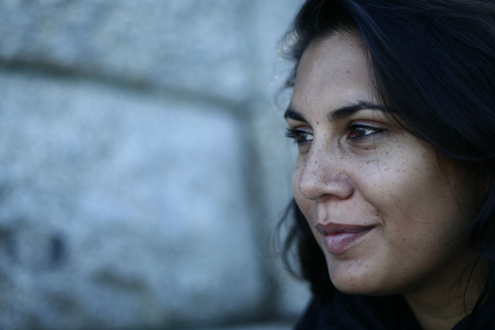
Chandra Frank
Curator and PhD Candidate
Magazine


Face to Face - A digital art exchange project between the Netherlands and South Africa

Re(as)sisting Narratives: Exploring The Past To Write The Future
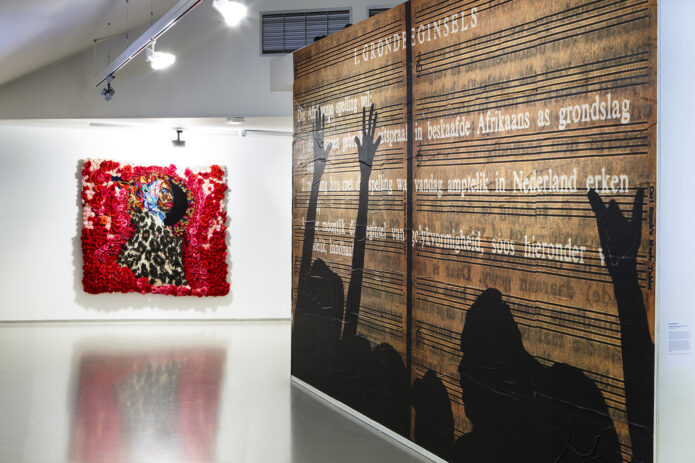
Interview: Chandra Frank in conversation with Toni Stuart
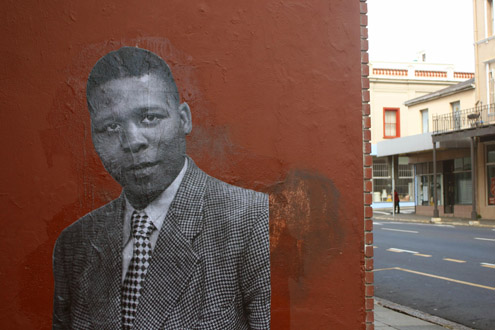
Interview with the Burning Museum Collective
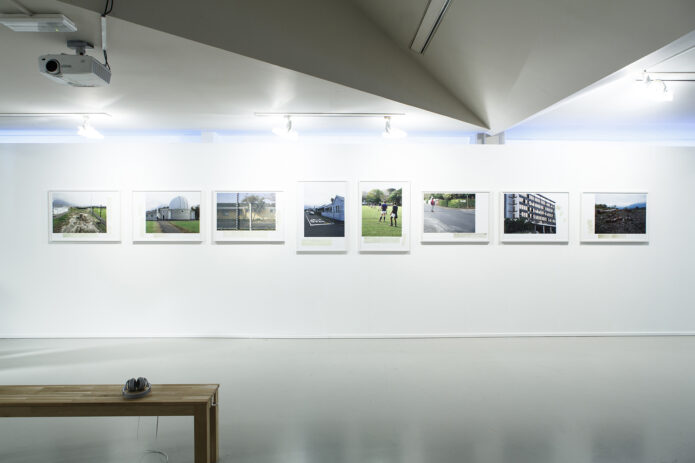
Interview with Judith Westerveld about her work 'The Remnant'
